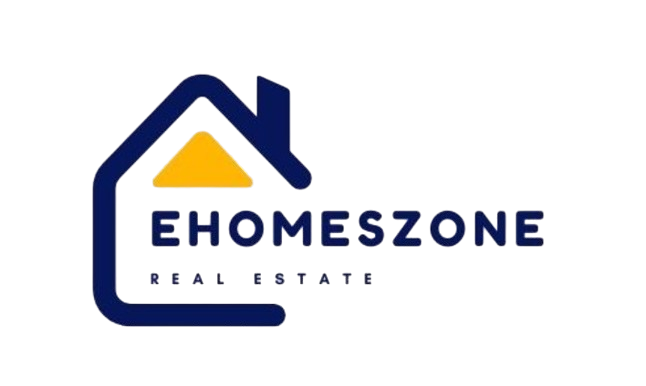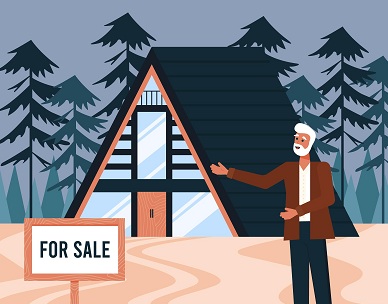One of the primary challenges when selling a house is pricing it correctly. Overpricing can deter potential buyers, while underpricing may lead to a loss of value. By utilizing a sell my house Carlsbad service, homeowners can rely on a comprehensive market analysis to establish a fair price by considering similar nearby properties. According to real estate experts, pricing a home right from the start is crucial to attract serious buyers and reduce the time it spends on the market. Additionally, setting the right price creates a competitive environment, potentially leading to multiple offers that could increase the final sale price. You can increase the price in a seller’s market with more buyers than available properties. Conversely, competitive pricing in a buyer’s market can help your property stand out.
Home Staging
Presentation is critical in making a home appealing to buyers. Proper home staging can significantly impact the buyer’s perception and increase the likelihood of a sale. Simple tasks like decluttering, cleaning, and adding tasteful décor can go a long way. For instance, these home staging secrets include tips like using neutral colors and creating a focal point in each room to make the property more inviting. Investing in professional home staging services has been shown to increase the sale price by 1% to 5% compared to non-staged homes. Consider making the space less personal by removing family photos and personal belongings. This can assist potential purchasers in imagining themselves residing in the house. Enhancing curb appeal by maintaining the lawn, freshening the paint, and ensuring an inviting entrance can create a favorable first impression.
Managing Buyer Requests
Buyers may request repairs or modifications as part of their offer. It’s essential to handle these requests diplomatically while balancing your costs. Prioritizing necessary repairs and being upfront about the property’s condition can streamline this phase. A pre-inspection report can also help address potential issues beforehand, making negotiations smoother. Repair requests can range from minor fixes, like a leaky faucet, to more significant issues, like roof repairs or electrical problems. Dealing with these problems promptly can prevent them from becoming deal-breakers in the negotiation phase. Additionally, offering a home warranty can provide buyers with peace of mind, potentially reducing their repair requests.
Navigating Legalities
Selling a property includes agreements, statements, and adherence to city regulations, which may be complex regarding legality. Consulting with a real estate lawyer or a knowledgeable agent can help clarify these requirements and ensure a smooth process. Correctly filled documentation and understanding your legal obligations can prevent future disputes and hold-ups. It’s crucial to disclose known issues with the property, such as past water damage or structural problems. Not disclosing information can result in legal issues in the future. Collaborating with seasoned experts can assist you in understanding and circumventing these regulations to prevent possible setbacks.
Marketing Your Property
Successful marketing is crucial for drawing in prospective purchasers. High-quality photographs and detailed descriptions enhance the appeal of your listing. Data shows properties with professional photos sell 32% faster than those without. Creating a virtual tour or video walkthrough can also attract more interest, especially in today’s digital age. Highlight your home’s unique features, such as a recently renovated kitchen or a spacious backyard. Share the listing on various platforms, including real estate websites, social media, and community boards.
Open Houses and Showings
Organizing open houses and showings can take time and effort, primarily if you reside in the home. However, they are critical for allowing buyers to experience the property firsthand. Ensuring the house is clean and inviting can make a positive impression. Moreover, being open to various showing times can cater to a larger pool of prospective buyers, thus boosting the likelihood of a profitable transaction. Remove valuable items and personal documents before open houses. Offering light refreshments and property brochures can enhance visitors’ experiences.
Handling Offers and Negotiations
Receiving offers is an exciting process, but negotiation is often necessary. It’s crucial to remain calm and consider each offer carefully. Being open to negotiation while keeping your bottom line in mind can help you reach a satisfactory agreement. Keeping track of the competitive market rates and being prepared to counteroffer can be beneficial strategies at this stage. Consider the overall terms of the offer, not just the price. Factors such as the buyer’s financing, closing timeline, and contingencies can impact the final decision. Discuss with your agent to assess the offers and create a negotiation plan that matches your objectives.
Finalizing the Sale
Once an offer is accepted, finalizing the sale involves inspections, appraisals, and ensuring financing is in place. Coordination with various professionals, including agents, inspectors, and lenders, is essential during this final phase. Regular communication can ensure any issues are addressed promptly. For example, using a checklist to keep track of all required tasks can streamline the final steps to closing. Be prepared for the final walkthrough, where the buyers will inspect the property to ensure it’s in the agreed-upon condition. Address any last-minute repairs and ensure all agreed-upon items are left in the home. Working closely with your agent and attorney can facilitate a smooth closing process.










Find Us on Socials